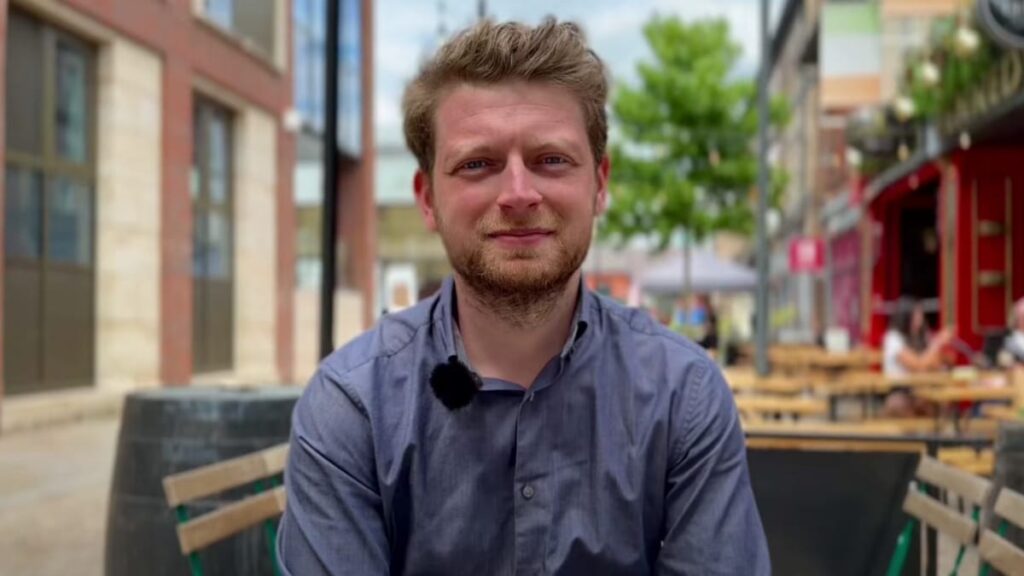Dear Matthew,
Thank you for taking the time to write to me about Kim Leadbeater’s Terminally Ill Adults (End of Life) Bill.
I recognise the importance of this issue and that there are strongly held ethical and moral positions on both sides of the debate. I am grateful to everyone who has taken the time to get in touch with me about it in recent months, often sharing deeply moving and personal reasons as to why they support or oppose the Bill.
Friday’s vote on the Bill will be a historic moment. Given the seriousness of the issues at stake, I have taken the time to give this matter deep consideration and I have studied the draft Bill carefully to understand its scope and safeguards.
Having done so, I have decided to vote in favour of the Bill at its Second Reading. For the sake of transparency, I want to be clear on why I have reached this position.
I support the principle that those with a terminal diagnosis of less than 6 months should have a choice over how their life ends. I would want this same choice for myself, so providing the right safeguards are in place, I do not feel that I can deny it to someone else.
I have huge sympathy with the arguments of those with a terminal illness who want to be able to end their pain and have choice at the end of life. Indeed, I have been contacted by many constituents who are in this position themselves or have seen a loved one suffer enormously before their death. Heartbreaking stories locally of terminally ill people starving themselves or refusing medication so they can try to end their own life has weighed heavily on my mind.
As I have said previously, it is vital to me that any legislation on assisted dying has strong safeguards that will stand the test of time.
I believe that this Bill is tightly drafted, narrow in its scope, with strong safeguards in place. It is clear that only terminally ill, mentally competent adults can request assisted dying and these requests must be rigorously assessed by two independent doctors who can then confirm the person meets all the criteria and is making an informed decision, free from coercion.
The application is then subject to judicial oversight with a High Court Judge ensuring the processes have been followed properly and the person in question has a clear and settled wish to end their own life.
The patient can change their mind at any point in the process until they have self-administered an approved substance to bring about their own death. There are several mandatory, built-in periods of reflection for the patient throughout the process to ensure they do not make a rushed decision.
I appreciate the concerns people have about the risk of coercion, but the Bill makes coercing, pressuring or dishonestly inducing someone into making a declaration that they wish to end their own life a criminal offence punishable by 14 years in prison.
If the Bill does pass, details on every assisted death will be collected and published annually, with the operation and impact of the law reviewed regularly, allowing Parliament to ensure it is working as it should.
These measures would give the Bill stronger safeguards than assisted dying laws in other parts of the world.
It is important to say that Friday’s vote is just one of the stages of this Bill’s parliamentary journey. If it passes this stage, it does not mean that it becomes law, just that it will move to the Committee Stage – where it would be thoroughly scrutinised by MPs on both sides of the debate, with the possibility of it being amended, before being voted on again by all MPs at the Third Reading.
I think it’s important that the Bill has provoked a national conversation about terminal illness and palliative care, which, despite their huge importance, often do not get the attention they deserve. I want there to be further conversation on these issues, and I believe there will be if this Bill progresses to its next stage on Friday and is closely scrutinised in the months ahead.
If during this process, there were opportunities to strengthen the Bill further by putting additional safeguards in place that guard against unintended consequences, then I would be inclined to support them.
Despite my provisional support for the Bill, I want to be clear that I firmly believe assisted dying should not become an alternative to high-quality palliative and end of life care. People deserve dignity in dying, and each person nearing the end of their life should feel reassured and safe in the knowledge they will receive the very best care. I welcome that the Government are committed to delivering this through improvements to the NHS, social care and palliative care services.
However, after speaking to constituents and to professionals working in palliative care, it is clear that there are circumstances where even the best care cannot prevent someone from dying in pain without the dignity they would want, so I do not believe that the current state of palliative services is a reason to vote against this Bill.
Thank you again for writing to me. The powerful and moving arguments of people like yourself have made a real difference in shaping my view on this vitally important issue. I do, however, want to reiterate that I fully respect the views of people who oppose the Bill. I think the debate over these issues has been conducted in a good-natured way and I hope that this can continue regardless of what happens with Friday’s vote.
Yours sincerely,
Member of Parliament for Altrincham and Sale West












